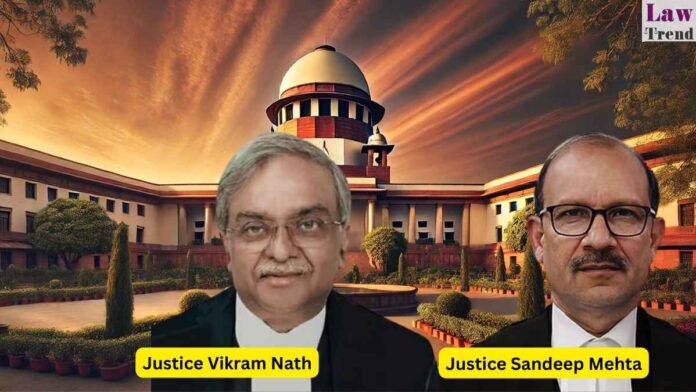The Supreme Court of India, while acquitting a man in a 2008 murder case, has issued significant, binding directions to all trial courts to ensure the “fairness and integrity” of evidence recorded via video conferencing (VC). A Division Bench of Justice Vikram Nath and Justice Sandeep Mehta, hearing the case of Raj Kumar @ Bheema
To Read More Please Subscribe to VIP Membership for Unlimited Access to All the Articles, Download Available Copies of Judgments/Order, Acess to Central/State Bare Acts, Advertisement Free Content, Access to More than 4000 Legal Drafts( Readymade Editable Formats of Suits, Petitions, Writs, Legal Notices, Divorce Petitions, 138 Notices, Bail Applications etc.) in Hindi and English.




